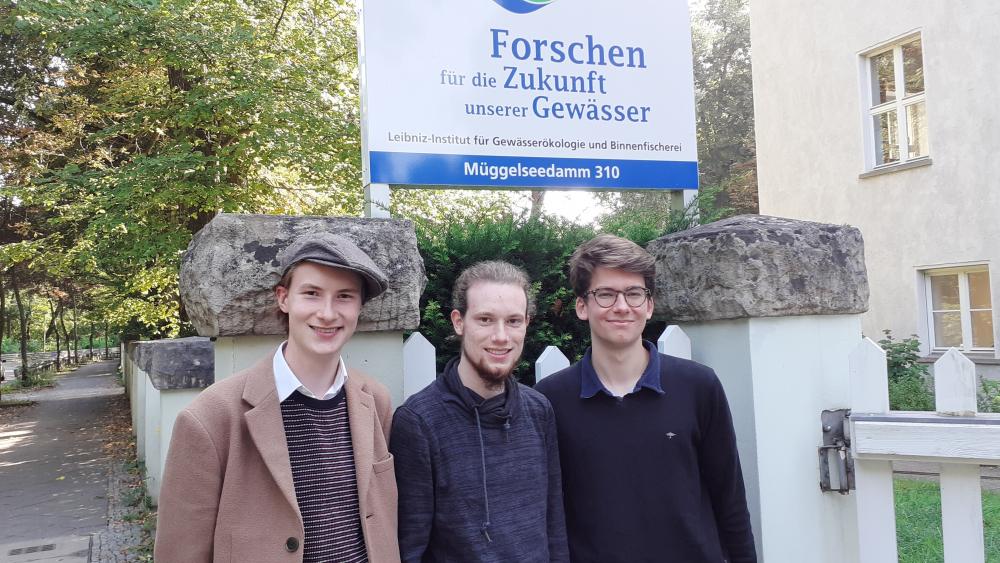
The three "Jugend forscht" winners Leon Nitsche, Leon Kausch and Moritz Grumann at IGB. | Photo: Nadja Neumann
Leon Kausch, Leon Nitsche and Moritz Grumann won second place in the national "Jugend forscht" competition with a water topic. It was only logical that the three of them chose IGB as the place for a follow-up internship from among various possible institutions. There they were able to delve directly into the topics they had dealt with in their "Jugend forscht" project and learn about new aspects of water research: water and nutrient flows in the landscape (with Ann-Marie Ring), the analysis of sediments (with Thomas Gonsiorczyk), aquaponics (with Hendrik Monsees), urban waters (with Rosanna Wiebe) and the potential of drones and remote sensing for ecological research (with Hauke Dämpfling). With David Bierbach, they studied the behaviour of fish in shoals over several days.
The boys' career ambition is clear: to become researchers. Two of them have already started their studies. "It was a very varied and informative time at IGB. And we got a good insight into the everyday work and processes at a research institute. It definitely helped us to develop a clearer idea of our own career," said Leon Kausch on behalf of the team.
We also had a lot of fun!
The winning topic: Cave with secrets
Caves are extremely sensitive habitats for rare organisms and are therefore subject to special protection. Leon Kausch, Leon Nitsche and Moritz Grumann got to the bottom of the secrets of the Križna Jama karst cave. A holiday trip to Slovenia had awakened their spirit of research. What microorganisms does the cave harbour? Does cave protection work despite tourism? To answer these questions, the young researchers developed a small research boat with an air propeller drive with which they could take water samples fully automatically. Their analyses showed no negative influences from careful tourist use. Moreover, they give rise to the assumption that there is another, hitherto unknown and nutrient-rich water inflow to the cave.

Photo: Jan Hallermann

Photo: Leon Kausch

Photo: Nadja Neumann


